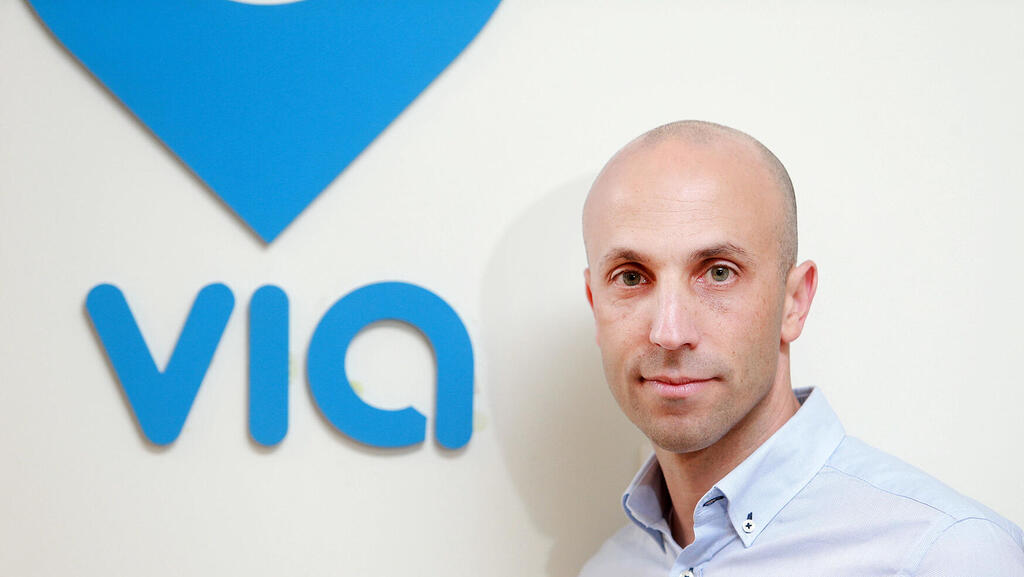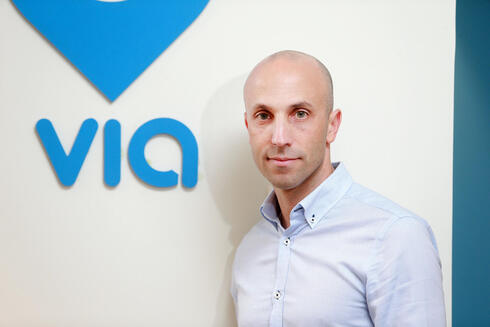
Via eyes acquisitions after completing $493M NYSE IPO at $3.65B valuation
CEO Daniel Ramot says listing positions firm to acquire competitors and scale globally.
Via Transportation, the Israeli company that developed a digital platform for planning and operating public transportation services, successfully completed a $492.9 million initial public offering (IPO) on the NYSE on Thursday. The company sold about 10.7 million shares at $46 per share, above its initial range of $40–44. The pricing gave Via a valuation of $3.65 billion, higher than the $3.5 billion value from its most recent private fundraising round.
Founded in 2012 by Daniel Ramot and Oren Shoval, Via employs about 1,100 people and generates revenues estimated in the hundreds of millions of dollars annually. The company operates in more than 650 cities across about 30 countries, including New York, London, Miami, San Francisco, and Seattle, as well as regional networks in Estonia, Luxembourg, and Flanders.
“This is a very exciting and very significant day in the life of the company,” said Ramot, Via’s CEO, in an interview with Calcalist. “We started talking to investors a few months ago, and this isn’t something familiar to them. There are no companies that are truly similar to us, neither in terms of our market nor our technology. We had to explain our story in depth over time, but in the end, we did it successfully.”
No easy comparisons
Ramot said one of the most difficult questions from investors was who Via should be compared to. “There’s no one entity that’s similar to us. We tried to compare ourselves to Tyler Technologies, which sells technology to public bodies, courts, and local authorities. They’re profitable and valued at $23 billion, but their financial profile, selling software to authorities, is similar to ours.”
Investor message
Asked what messages he conveyed to investors, Ramot highlighted the company’s growth profile and near-profitability. “We are very close to profitability, we have a growth rate many companies don’t have, and very strong statistics, including almost zero customer abandonment. Even institutions that don’t usually invest in IPOs are coming in. Our target market, dynamic public transportation, is estimated at hundreds of billions of dollars. In North America and Europe alone, it’s an $80 billion market, and we have less than 700 customers with only half a percent penetration. The potential is huge.”
Related articles:
Why now?
Ramot explained that the IPO was not a necessity but a strategic decision. “We didn’t have to go public. The decision was based on a variety of considerations. It seems like there’s a ‘window’ in the market. and we need to seize it. Investors see that we can grow consistently and have a strong product-market fit. We also believe that providing critical infrastructure to public organizations requires us to be a public company. It reassures our customers. Just as Fortune 500 companies prefer to buy cyber services from public firms, the entities we work with prefer the same.”
Post-IPO outlook
Ramot said the IPO would not fundamentally change how Via operates. “We’ve been operating like a public company for three years, meeting goals and forecasts, so nothing will change fundamentally. But I hope it will help us grow and give us the opportunity to use our stock as currency to acquire companies. There are smaller firms that keep building platforms, and we may acquire one or two to expand our offering.”
Investors and Israel
On investor concerns about Israel, Ramot said the vast majority were supportive. “We didn’t encounter anyone who disqualified us just because we are Israeli. Most saw us positively, and I always present myself as a graduate of Talpiot and the Air Force.”
Personal vision
Ramot emphasized his long-term commitment to the company. “I’ve been with the company for 13 years, and this feels like just the first step. We help people who haven’t left their homes for years. In some places, since we launched, people’s incomes have increased significantly. Our users are mostly people with low incomes. We bring people new capabilities, helping them find work and improve their lives. I intend to be with the company for many more years, because the IPO is just the beginning of something very special.”
